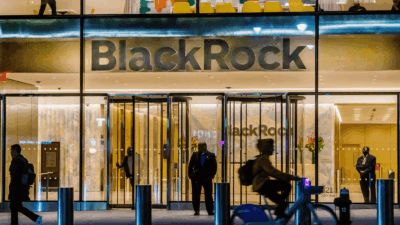UK-Based Baillie Gifford Takes the ETF Plunge Stateside
The firm has waited until now to expand its US product line as sales trends are favoring ETFs over many mutual funds.

Sign up for exclusive news and analysis of the rapidly evolving ETF landscape.
Another longtime mutual fund manager has found the call of ETFs impossible to resist.
Baillie Gifford, the Edinburgh-based firm that manages $264 billion globally, filed for its first US exchange-traded funds last week. The actively managed suite of five products will include assets from existing mutual funds. It’s the latest industry holdout to make such a move, as sales have widely favored ETFs over mutual funds, particularly in active management. As part of the expansion, the firm recently hired Jamie McGregor, who until August led Goldman Sach’s portfolio implementation and capital markets team in its ETF Accelerator program.
“Even with the abundance of ETF options within broader asset classes, the selection is limited for investors who are seeking an active, growth-focused approach, with a genuinely long-term horizon,” McGregor said in an announcement. “Of 235 international large cap equity ETFs, only 11 offer active long-term growth strategies, leaving a clear opportunity for active solutions.”
Timing Isn’t Everything
It’s notable that Baillie Gifford, like Lazard, First Eagle, Parnassus, Praxis, Thornburg and Tweedy, Browne, is breaking into the ETF business at a time of significant change. The Securities and Exchange Commission is set to approve the first dual-share-class requests by asset managers, including one from Baillie Gifford. When Vanguard’s patent on the ETF share class structure expired last year, “it looked like the best thing since sliced bread,” said Cindy Zarker, relationship manager at Fuse Research Network. “But as firms dug deeper into it, they realized it’s another tool in the toolbox, but not necessarily the only tool.” Even Vanguard, for example, has recently launched or prepped active ETFs that are separate from its mutual funds.
There are at least a couple hurdles for firms rolling out ETF share classes:
- Unless they already run ETFs, they have to expand their capabilities by hiring more staff and spending on technology, or they can work with third-party trusts.
- The distribution case for more ETFs is murky, as broker-dealers may be slow to approve them for their platforms.
Active Cultures: Baillie Gifford, whose US assets under management total $116 billion, is prepping funds that will target Emerging Markets, International Alpha, International Concentrated Growth, Long Term Global Growth and US Equity Growth. Sales have been difficult recently for the firm, despite its strong reputation as a manager, Zarker noted. Its success in ETFs may hinge on improving performance and putting resources into distribution and marketing, she said.
“Even if you take a mutual fund and convert it to an ETF or hang a [new] share class off of it, that’s not going to guarantee that it will get flows into the ETF,” she said. “It’s still an extraordinarily competitive market.”











